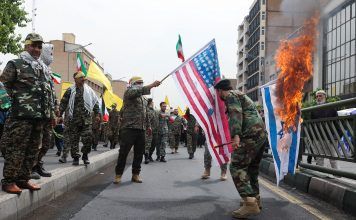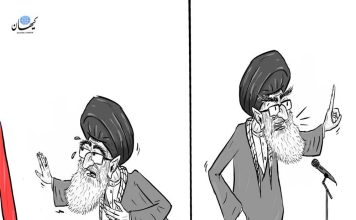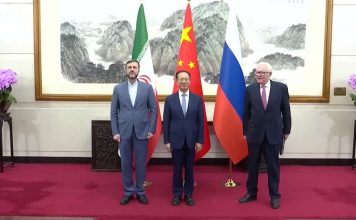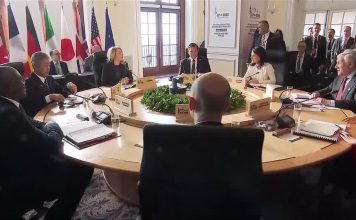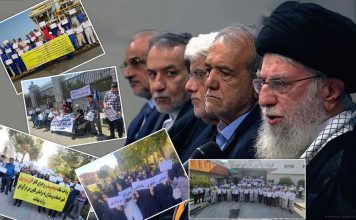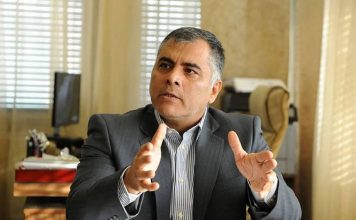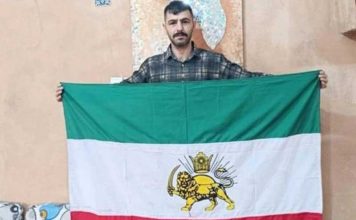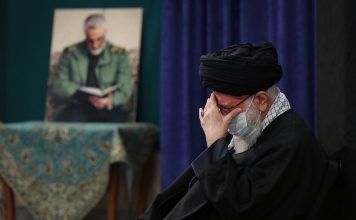By Ahmad Rafat
At 8 am (local time) on June 21, hundreds of officers from the Albanian Special Anti-Corruption Structure (SPAK) and the Department of Neutralization of Armed Elements (RENEA) entered camp Ashraf-3 in the port city of Durres to investigate, search and arrest 70 members of the People’s Mojahedin-e-Khalq Organization (MKO).
On June 20, 2023, a newsworthy incident unfolded at Ashraf 3, a camp in Albania that houses members of the Mujahedin-e-Khalq (MEK), an Iranian political-militant organization. In recent years, a portion of the MEK members have relocated to Albania, with Ashraf 3 serving as their… pic.twitter.com/7qgbxFlhF9
— Kayhan Life (@KayhanLife) June 21, 2023
Some 3,000 people who had been moved from Iraq to Albania in 2014 — following an agreement between the U.S., the UN, and Albania — flooded the streets of the complex immediately, trying to prevent Albanian officers from executing the warrants issued by the Albanian Judiciary for the search of the premises and arrests of these individuals.
MKO members and SPAK and RENEA officers clashed, forcing the police to use teargas to disperse the crowd and continue their investigation and search of the organization’s offices.
[aesop_image img=”https://kayhanlife.com/wp-content/uploads/2023/06/Image-2023-06-21-at-22.13.31.jpg” panorama=”off” credit=”KL./” align=”center” lightbox=”on” captionsrc=”custom” captionposition=”left” revealfx=”off” overlay_revealfx=”off”]
Abdolvahab Farajinejad, an MKO member who went by the alias “Ali Mostashari,” died after suffering a heart attack during the clashes with the Albanian police. He was an MKO military commander in Tehran in the 1980s.
Others who had difficulty breathing after exposure to teargas and pepper spray were taken to the hospital.
Police searched camp Ashraf-3 and MKO offices for four hours, seizing computers and documents.

The Special Prosecutor’s Office Against Corruption and Organized Crime issued the warrant for the search of the Ashraf-3 complex and the arrest of 70 MKO members three days after a special meeting of Albania’s National Security Council, chaired by Albanian President Bajram Begaj.
The meeting’s agenda included discussions about the Islamic Republic’s cyberattacks on the Albanian government’s electronic communications systems in September, prompting Tirana to sever diplomatic ties with Tehran.
Iran’s ‘Kleptocratic’ Leadership Will Fall, Says Albania’s Ambassador to UN
The meeting also included discussions about MKO’s illegal cyber activities, opaque financial dealings, and the use of digital currency.
Based on information Kayhan Life has received from Albanian intelligence sources, at least 20 countries have shared their investigation into MKO’s cyberattacks on their electronic communication systems with the Albanian government, urging it to pursue the matter urgently.
In a brief telephone conversation with Kayhan Life, MKO’s lawyer, Genc Gjokutaj, said: “Thousands of agents violently entered the complex with no prior notice, which led to the violent death of one person and 30 others injured.”
“We are awaiting the Interior Ministry and police’s final report so that we can file a complaint with the Judiciary regarding the police’s unprofessional conduct,” Mr. Gjokutaj added.
Speaking about “combating corruption and organized crimes,” a source inside the district attorney’s office told Kayhan Life: “We informed NATO and the U.S. about our plan to enter Ashraf-3 to serve the search and arrest warrants to a group of MKO members.”
“MKO’s claim that we took the measure under pressure from the Islamic Republic is completely unfounded because we severed our ties with Iran after they launched a cyberattack on our government’s internet and communication systems,” the same source added.
“Normalizing ties with the Islamic Republic is not on the Albanian government’s agenda,” the source noted.
MKO’s political arm, the “National Council of Resistance of Iran (NCRI),” released a statement accusing Albania of committing an “oppressive and criminal” attack against Ashraf-3 at the “behest of the religious fascism ruling Iran.”
MKO’s statement compares the Albanian government’s actions to those of former Iraqi Prime Minister Nouri al-Maliki (in office from 2006 to 2014), who closed MKO’s Ashraf-1 camp, following the fall of Saddam Hussein (in office from 1979 to 2003).
A few hours after the police had left the Ashraf-3 camp, Albania’s Interior Minister, Bledar Cuci, and the country’s chief of police, Muhamet Rumbullaku, held a news conference.
“We have been collecting evidence on MKO’s illegal cyber activity for some time now, and after a lengthy investigation, the Special Court against Corruption and Organized Crime issued a search warrant,” Mr. Cuci told reporters.
Minister Cuci said that “while investigations were ongoing,” he could not speak about the charges the Judiciary had filed against the MKO., adding that the police could not share the evidence until the investigation ends.
“I am both angry and disappointed by MKO’s actions because their lack of cooperation with police officers serving court warrants is unacceptable,” Cuci said. “We cannot accept those living in Albania, and are our guests, to behave irresponsibly and violate our laws.”
“The entire operation, from start to finish, was filmed by drones,” Minister Cuci explained. “We will gradually release all the footage, which undoubtedly proves that police committed no violence against the residents in the complex.”
“MKO had installed dozens of closed caption cameras around the camp, so we ask them to release the footage, which they claim shows police acted violently towards them,” Cuci added.
Albania’s chief of police, Muhamet Rumbullaku, sitting next to Minister Cuci at the press conference, said: “We met six MKO members half an hour before police entered the complex, given the sensitive nature of the situation. We showed them the court warrants and asked for cooperation, and they accepted.”
“However, shortly after police entered the complex, they formed a human chain or lay down in front of police cars, trying to prevent us from entering and searching 70 buildings of the 127 in the residential complex. They also burned some documents and disconnected computers,” Chief Rumbullaku explained.
Albanian police have released footage showing people setting fire to documents and shutting down computers.
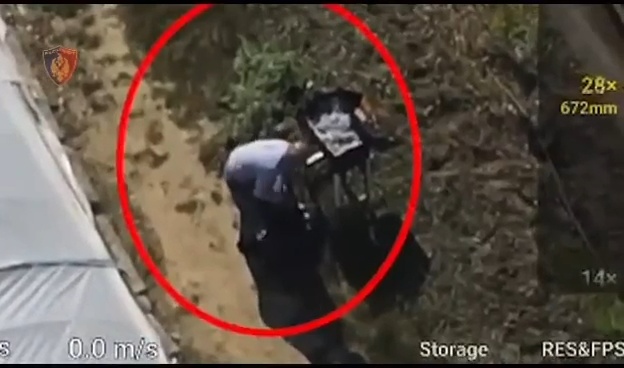
Reports said 21 MKO members and 15 police officers affected by teargas and pepper spray were taken to the hospital.
[aesop_image img=”https://kayhanlife.com/wp-content/uploads/2023/06/Image-2023-06-21-at-22.14.13.jpg” panorama=”off” credit=”KL./” align=”center” lightbox=”on” captionsrc=”custom” captionposition=”left” revealfx=”off” overlay_revealfx=”off”]
Speaking about the death of Ali Mostashari, Chief Rumbullaku said: “The cause of his death is not known yet. We are awaiting the autopsy results from the coroner’s office.”
Albania’s interior minister and chief of police said MKO had repeatedly violated the terms of their written agreement before moving from Iraq to Albania at the behest of the U.S. and the UN.
Under the agreement, MKO had promised not to act against any country on Albanian soil.
In 2014, the U.S. State Department asked Albania to allow MKO to move to that country.
“We understand that on June 20, the Albanian State Police entered the Mujahedin-e-Khalq (MEK) compound in Durres, Albania, to execute a court order,” a U.S. State Department statement said on June 21.
“The Albanian State Police have assured us that all actions were conducted under applicable laws, including regarding the protection of the rights and freedoms of all persons in Albania,” the statement explained.
“We support the Government of Albania’s right to investigate any potential illegal activities within its territory,” the statement added. “We refer you to the Government of Albania for further details.”
“As we have said before, the United States does not see the MEK as a viable democratic opposition movement that represents the Iranian people,” the statement noted.
“The U.S. government does not provide support or training to the MEK, does not contribute funding to the organization, and does not maintain substantive contact beyond issues related to the MEK’s resettlement, completed in 2016,” it explained.
“The State Department continues to have serious concerns about the MEK as an organization, including allegations of abuse committed against its members,” it concluded.
Albania’s chief of police, Muhamet Rumbullaku, noted that MKO’s residential complex in Durras occupied 40 hectares of land, adding that “the small city they have created is on Albanian soil; hence, they must abide by the country’s law.”
“The Judiciary can execute a search warrant if it deems it necessary,” Rumbullaku said.
“We cannot accept those whom we have graciously welcomed as our guests to act outside the law,” Rumbullaku added. “Up to now, we have been extremely patient with the MKO breaking the law.”
Several prominent Albanian politicians condemned the police action on June 20.
Sali Brisha, Albania’s 3rd president (in office from 1992 to 1997), who was also Albania’s 3rd Prime Minister (in office from 2005 to 2013), said: “I condemn physical violence.”
Brisha, whose government negotiated the transfer of MKO members from Iraq to Albania in 2013, described the police operation as “lawless.”
In May 2021, the U.S. Department of State sanctioned Sali Brisha, his wife, and his son, banning them from entering the U.S. for their alleged “involvement in significant corruption.”
A year later, the UK and several European countries also barred Brisha from entering those countries.
Ilir Meta, former Albanian president (in office from 2017 to 2022), and current head of the Freedom Party, also criticized the police for “unprofessional” conduct and “lack of transparency.”

